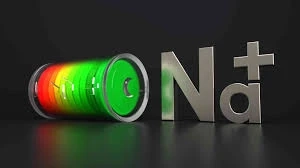The global sodium-ion battery market is set to grow at a CAGR of 20.85%, with projections from US$ 370.34 million to US$ 1684.97 million by 2024 to 2032. The global energy storage landscape is undergoing significant transformations, driven by the increasing demand for sustainable and cost-effective solutions. Among the emerging technologies, the sodium-ion battery market is gaining notable traction. This innovative technology promises to address some of the limitations of the widely-used lithium-ion batteries, offering a compelling alternative for various applications. This article delves into the sodium-ion battery market\'s current status, growth drivers, challenges, and future prospects.
Browse the full report at https://www.credenceresearch.com/report/sodium-ion-battery-market
Market Overview
Sodium-ion batteries are rechargeable batteries that use sodium ions (Na+) as the charge carriers. Similar to lithium-ion batteries, they consist of a cathode, an anode, and an electrolyte, but they differ in the active materials used. Sodium-ion batteries are increasingly being recognized for their potential in large-scale energy storage applications due to the abundance and low cost of sodium compared to lithium.
As of 2023, the global sodium-ion battery market is in its nascent stages but exhibits significant growth potential. The market size was valued at approximately USD 600 million in 2022 and is projected to reach USD 1.5 billion by 2028, growing at a CAGR of 15% during the forecast period. This growth is primarily driven by the increasing need for grid-scale energy storage solutions and the rising adoption of renewable energy sources.
Market Drivers
Several key factors are propelling the growth of the sodium-ion battery market:
1. Cost-Effectiveness and Abundance of Sodium: Unlike lithium, sodium is abundantly available and less expensive, making sodium-ion batteries a cost-effective alternative for energy storage. This affordability is particularly advantageous for large-scale applications, such as grid storage, where cost is a critical factor.
2. Environmental Sustainability: Sodium-ion batteries offer a more environmentally friendly option compared to lithium-ion batteries. The extraction and processing of sodium have a lower environmental impact, aligning with the global push towards greener technologies.
3. Technological Advancements: Continuous research and development efforts are enhancing the performance and efficiency of sodium-ion batteries. Innovations in electrode materials, electrolytes, and cell design are improving energy density, cycle life, and safety, making these batteries more competitive.
4. Growing Renewable Energy Integration: The increasing integration of renewable energy sources, such as solar and wind, into the power grid necessitates efficient and reliable energy storage solutions. Sodium-ion batteries are emerging as a viable option to store excess energy generated from renewables and ensure a stable power supply.
Market Challenges
Despite the promising potential, the sodium-ion battery market faces several challenges:
1. Lower Energy Density: Sodium-ion batteries currently have a lower energy density compared to lithium-ion batteries, which limits their applications in high-energy-demand sectors like electric vehicles (EVs). However, ongoing research aims to bridge this gap and enhance their competitiveness.
2. Commercialization and Scalability: While laboratory results have been promising, scaling up sodium-ion battery production to a commercial level poses significant challenges. Establishing a robust supply chain and manufacturing infrastructure is crucial for market growth.
3. Performance at Low Temperatures: Sodium-ion batteries tend to have reduced performance at low temperatures, which can limit their use in certain geographical regions and applications. Addressing this issue through material and design innovations is essential for broader adoption.
Future Prospects
The future of the sodium-ion battery market looks promising, with several trends and developments shaping its trajectory:
1. Increased R&D Investments: Governments, research institutions, and private companies are investing heavily in sodium-ion battery research. These efforts are expected to yield breakthroughs in performance, cost reduction, and commercialization.
2. Partnerships and Collaborations: Strategic partnerships between battery manufacturers, energy companies, and technology developers are driving innovation and accelerating the commercialization of sodium-ion batteries. Collaborative efforts are essential to overcoming technical and market barriers.
3. Expanding Applications: While grid-scale energy storage remains the primary focus, sodium-ion batteries are also finding applications in portable electronics, residential energy storage systems, and backup power solutions. Diversifying applications will contribute to market growth.
4. Regulatory Support and Incentives: Government policies and incentives promoting renewable energy and energy storage solutions are expected to boost the sodium-ion battery market. Supportive regulations will encourage the adoption of sodium-ion batteries in various sectors.
Key Players:
- Faradion Limited
- NGK Insulators Ltd.
- TIAMAT SAS
- HiNa Battery Technology Co., Ltd.
- Contemporary Amperex Technology Co. Limited
- AMTE Power PLC
- Natron Energy, Inc.
- Haldor Topsoe A/S
- NEI Corporation
- AGM Batteries Limited
Segmentation
By Product
- Sodium-Sulfur Batteries
- Sodium-Salt Batteries (Zebra Batteries)
- Sodium-Oxygen (Sodium Air) Batteries
By Technology
- Aqueous
- Non-aqueous
By Application
- Stationary energy storage
- Transportation
By Industry Vehicle
- Consumer Electronic Devices
- Automobiles and Transportation
- Power Backup
- Grid-Level Applications
- Industrial
- Aerospace and Defense
- Marine
- Others
By Region
- North America
- US
- Canada
- Mexico
- Europe
- Germany
- France
- UK.
- Italy
- Spain
- Rest of Europe
- Asia Pacific
- China
- Japan
- India
- South Korea
- South-east Asia
- Rest of Asia Pacific
- Latin America
- Brazil
- Argentina
- Rest of Latin America
- Middle East & Africa
- GCC Countries
- South Africa
- Rest of the Middle East and Africa
Browse the full report at https://www.credenceresearch.com/report/sodium-ion-battery-market
About Us:
Credence Research is committed to employee well-being and productivity. Following the COVID-19 pandemic, we have implemented a permanent work-from-home policy for all employees.
Contact:
Credence Research
Please contact us at +91 6232 49 3207
Email: sales@credenceresearch.com
Website: www.credenceresearch.com


